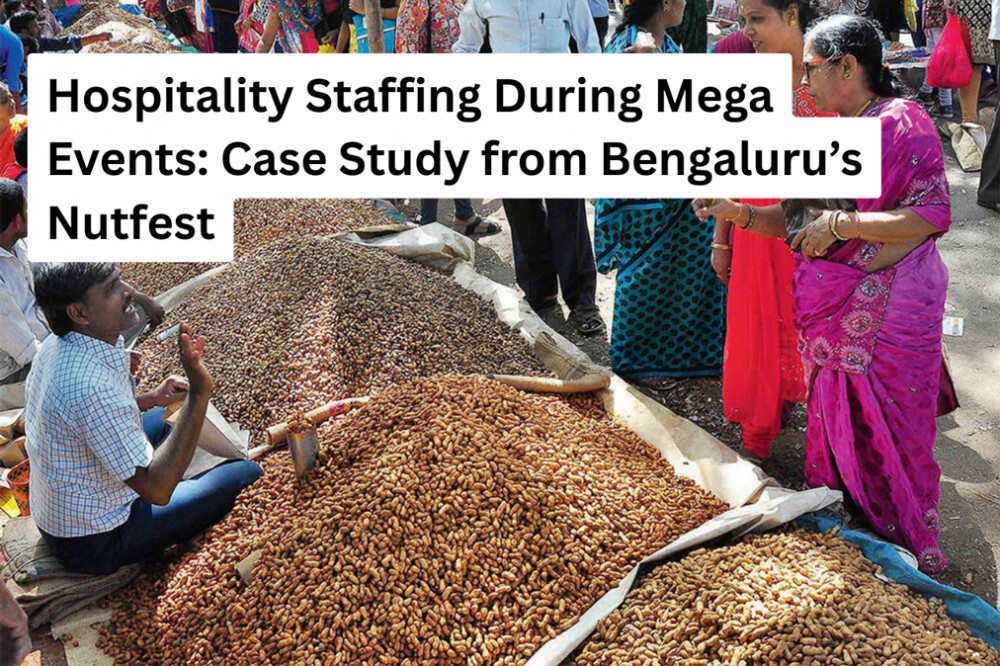
Top 7 Skills You Need to Work in a Regenerative Hotel in 2025

As sustainability evolves into regeneration, the hospitality industry is undergoing a fundamental shift. Eco-conscious travellers are seeking experiences that regenerate the ecosystem, rather than cause harm. For those starting in the industry, developing the right skills will be paramount in navigating the difference between being alongside the trend and leading the change. Below are the 7 key skills you will want to include in your regenerative hospitality careers and profiles to build unique jobs and skills in hotels 2025, while the eco-hotel hiring process continues to change.
1. Knowledge of Ecological Systems
Understanding ecological systems such as the local plant, animal and water cycles, soil health, and biodiversity is important. Regenerative hotels do more than just limit carbon footprint; they also replenish, for example, restoring water resources or soil, and creating biodiversity corridors.
Why it matters: You may work together with others on conservation projects onsite, design a regenerative landscape plan or educate guests on native plant restoration; if you have built a solid understanding of ecological systems, you will be a knowledgeable advocate for these programs.
How to build it:
- Take a class on environmental science or agroecology.
- Volunteer with local conservation or restoration efforts.
- Work with local non-government organisations (NGOs) to understand what the ecological challenges are in your region.
2. Regenerative Design & Circular Practices
To work in 2025 is to work considering models of a circular economy – closing loops of resources by preventing waste and reusing materials, refurbishing assets, and redesigning for longevity. In regenerative hospitality careers, you may support or lead design decisions: modular furniture, zero-waste kitchens, composting systems, water-reuse loops.
Why This is Important: Investors and eco-certifiers are increasingly asking about regenerative strategies, and not just carbon offsets. Your knowledge of how circular systems work promotes and returns on sustainable investments associated with hiring decisions in eco-hotels.
How to Build This:
- Investigate Cradle-to-Cradle design principles or biomimicry
- Do case studies (e.g., hotels creating compost tea, greywater irrigation, and construction materials from reclaimed components)
- Shadow regenerative design consultants and participate in their projects
3. Community Engagement and Cultural Sensitivity
Regenerative hotels flourish when they weave themselves into the local community—be it by co-creating with locals and artisans, sourcing locally, or honouring place-based cultural heritage. Key skills are collaboration with stakeholders, communicating across cultures, and co-creating local sourcing in innovative ways.
Why it matters: In hiring eco-hoteliers, potential employers look for candidates who can build authentic community relationships that will enhance social equity and guest experiences.
How to develop it:
- Practice active listening and storytelling techniques
- Volunteer with tourism or community outreach organisations in your community
- Learn about local languages, customs, and fair-trade sourcing methods
4. Regenerative operations & impact measurements
Gone are the days of just monitoring energy use or waste. In 2025, regenerative operations will involve impact measurements in an integrative fashion, tracking not just things like rebound of resources (e.g. kg of regenerated soil), metrics for habitat restoration, and community benefits, in addition to traditional KPIs.
Why it's important: You'll be using metrics to transparently communicate the progress you're making with all your stakeholders—from your shareholders to your guests—and you'll enhance the ongoing improvement of your regenerating hospitality career.
How to develop it:
- Get fully immersed with sustainability dashboards and ESG/GRI reporting standards for regenerative business.
- Be trained in tools like life cycle assessment (LCA) to assess your ecological impacts, natural capital accounting or Net Positive Hospitality frameworks.
- Engage with regenerative certifications, like LEED Zero or Living Building Challenge.
5. Guest Experience Storytelling & Education
When guests understand what it means to be regenerative, they can act as champions in regenerative change—when they are brought into the story. As a hotel employee, you will create guest experiences that combine hospitality with stewardship: experiential forest bathing experiences, restoration experiences in the soil, and farm dinners that celebrate local biodiversity.
Why it's important: Experiential storytelling builds authentic loyalty, as well as legitimate ongoing careers in regenerative hospitality that will turn guests into ambassadors for your hotel.
How to build it:
- Practice storytelling in a variety of formats, such as guided walks, interpretive signage, digital app development, and shorter narratives on social media.
- Learn about the design of experiences from an experience design point of view and nudging behaviour based on principles of behavioural science.
- Work with non-profits on workshops or pilot guest programs.
6. Regenerative Leadership & Adaptive Change Systems
In a regenerative hotel setting, a leader must navigate complexity within the regeneration layers—competing stakeholders, economies, regulations, and ecosystems. The leadership style must be adaptive and collaborative, seeing the future through a new lens. You must be comfortable facilitating multi-disciplinary teams, facilitating iterative prototyping and participatory decision making.
Why it's important: The eco-hotel employee workforce is increasingly being recruited from those with the ability to lead transformational change, such as re-living the supply chain or leading regeneration pilots.
How to build it:
- Take a leadership training course based on systems thinking or regenerative management.
- Practice a broad range of facilitation techniques, such as open-space technology or design thinking.
- Participate in peer learning cohorts or regenerate leadership networks by non-profits (for example, Regenerative Travel or Aaron Sachs initiatives).
7. Technical Know-How Linked to Green Technologies
Regenerative hotels utilise renewable energy, passive design, smart water systems, and low-impact construction materials. Technological fluidity—from solar thermal controls to IoT-enabled compost monitors—provides the exactness needed to close resource loops.
Why it matters: if the green tech is in good working order, you are assured the outcomes will match the regenerative intent you planned for, and you will be a critical and needed factor in Hotel Job Skills 2025 to influence the recruitment of tech-savvy individuals that the workplace desperately needs!
How to build it:
- If available, obtain certifications in a green building or IoT/data analytics.
- Learn first-hand on-site in firms specialising in regenerative projects with some project case studies—eco-lodges with solar-biomass hybrids.
- Learn to deploy the use of digital twin models or remote sensor monitoring in the tracking of resources.
Just as regenerative hospitality resets the boundaries of how hotels can heal versus exploit, the bar of excellence has been raised. If you have developed the seven skills above, you are now much more than just another job applicant and are looking to really be a changemaker in regenerative hospitality careers!!
The future of eco-hotel hiring is much more than ethical end-of-life operations; it is about regeneration. In 2025, the highest-paid professionals will be those who can genuinely design, operate, and lead regenerative experiences! Start to cultivate these skills now, and you'll be able to co-create hospitality that restores people, place, and planet and to do it for the long haul.
Related Blogs

The Rise of Boutique Hotels: Recruiting for Experience, Not Size
73 Views

Top 5 Hospitality Roles Most in Demand This Quarter
71 Views

Hospitality Staffing During Mega Events: Case Study from Bengaluru’s Nutfest
86 Views

Festival Hospitality: What Food Events Teach About Guest Management & Staffing
194 Views

Little Guests, Big Smiles: How Hotels Design Family-Friendly Experiences
171 Views